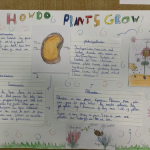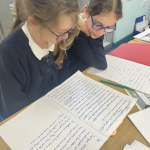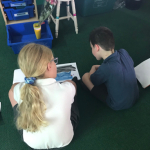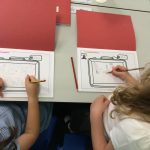Statement of Intent
At St Oswald’s CE Primary School, our aim is to provide children with a high quality English Curriculum which is purposeful, diverse, relevant and engaging. We pride ourselves in developing a love of reading and writing whilst delivering a series of sequential lessons which build on prior learning, equipping our pupils for today and preparing them for the future with transferable skills. Our main priorities are to help all our children, including those who are vulnerable, to become fluent readers and avid writers. We promote the development of a ‘can do’ attitude whilst encouraging them to flourish and become the best that they can be. We encourage pupils to develop and understand their individual “Reader Identities”, giving the children constant access to a wide range of high-quality text types, genres and authors (including classics) to allow them to form their own opinions and preferences whilst developing a love of reading. We want to develop their self-belief and confidence by providing opportunities for them to be able to write with grammatical accuracy for a variety of purposes and audiences, whilst also developing their own writing style. Through providing access for children to a language-rich classroom environment, we aim to expose our children to a wide range of vocabulary so that they are able to decipher new words to include in their writing and then use them when speaking both informally and formally. We recognise that children need to develop a secure knowledge of the skills in English which follow a clear, sequential path of progression as they develop through the school. We aim for our children to apply their literacy skills to all other areas of the curriculum. This is crucial for our school as we support them to become lifelong readers and writers, enabling them to be ready for their next stage of education by being equipped with the foundations for becoming well-rounded and confident adults.
Implementation
These aims are embedded across our reading and writing lessons and the wider curriculum. As a school, we have a clear curriculum overview to ensure even coverage of genres, providing various opportunities for reading, writing and speaking and listening. We use a wide variety of quality texts and resources to motivate and inspire our children. Teachers also ensure that cross curricular links with concurrent topic work are woven into the programme of study where possible and appropriate.
Our implementation for reading and writing can be found on our further information pages below:
Impact
The impact is clear to see by the way children are engaged in lessons and can talk enthusiastically about reading and writing . In our pupil voice, all children who were interviewed said that they either liked or loved reading at school. When children were asked “What is your favourite thing about reading at St Oswald’s?” We had the following responses: “Finding lots of new books”, “It helps me relax after working hard” and “I like getting recommendations from my friends and telling them what I liked to read too” “I like story time because it is a special quiet time to listen”. Pupils show excitement about their work whether it be tweeting authors with examples of their writing or reading their stories to children in another phase. With each child’s reading and writing journey being well established and taught thoroughly from EYFS-Y6, children are equipped with the skills to prepare them for the future. They become confident writers and avid readers so by the time they are in upper Key Stage 2, most genres of writing are familiar to them. The teaching can then focus on higher-level vocabulary and punctuation, creativity and using their transferable skills across the curriculum.
Alongside ongoing assessments, each half term, children undertake an age appropriate formal assessment to allow teachers to monitor progress and plan for intervention as necessary. Our children’s learning is assessed from each teacher’s assessment, which includes cross-phase moderation as well as across various school moderations, using OTrack.
We hope that as children transition to their next stage in their education and learning, their creativity, passion for English and high aspirations travel with them and continue to grow and develop as they do.






